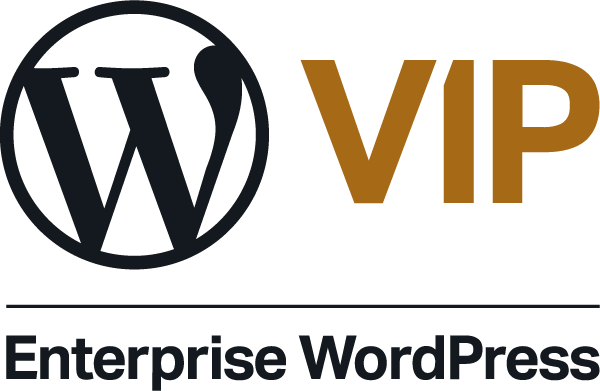UK experts talk driving a data-sharing culture in the public sector

Better data sharing holds the potential to revolutionise the accessibility of public services and information. At a Global Government Forum webinar, UK experts shared their perspectives on how to make this a reality, as well as the ethics and feasibility of data sharing within the public sector.
While governments have identified the need for shared data – particularly in the field of healthcare – the time, energy and public information requirements to enact such a system have halted the progress of agencies.
During a recent Global Government Forum webinar, public sector experts discussed the benefits of data sharing and how to encourage the integration of data across organisational boundaries.
The 2018 Data Protection Act and Part 5 of the 2017 Digital Economy Act, while beneficial to the security of data-sharing networks, are not entirely well known and frequently act as barriers for governmental organisations that refrain from data sharing for fear of breaching the General Data Protection Regulation (GDPR).
Anna Bartlett-Avery, head of data ethics and data sharing for the Welsh government, provided insights into the potential mechanisms the acts provide to the integration of data. Powers withing Part 5 of the 2017 Digital Economy Act were designed to make it “easier to give a more flexible gateway that didn’t rely on primary legislation to allow public authorities to share data with each other”.
Building the foundations for data sharing
Bartlett-Avery began her opening comments by defining data sharing as “an enabler to something” and explaining that “it’s not an outcome in itself”.
In a similar vein, Steven Burgess, digital and analytics director for the public sector at SAS UK, encourages the view of data sharing as an opportunity and as a “linkage for the public good.” Best case data sharing is when governments can achieve “collaboration among organisations within government, as well as strong partnerships with external researchers and organisations”, he said.

In her opening remarks, Sue Bateman, interim chief data officer for the Central Digital and Data Office, highlighted improvements the Cabinet Office has made since 2020 using national data strategies and data roadmaps. For the first time both a data ownership model and data maturity assessment have been released and are consistently maintained. These projects aid the larger, more central “front door” data marketplace the Cabinet Office uses “where organisations can come and find, understand and ultimately reuse data”. She added that “the important thing to say about all of that is that it’s been done with and for our community”.
Bartlett-Avery echoed this sentiment and stated that for Wales “data sharing, or fostering a culture of data sharing for the benefit of citizens, is a really key part of our digital strategy”. To incentivise and promote data-sharing networks, panellists agreed that focusing these campaigns on benefitting the public is by far the most influential strategy.
And as Bateman noted, data needs to not only be delivered at the right time and right place, but also in the right way to build an ethical foundation of trust.
Sign up for training on Unlocking Insights from Data to Improve Policy and Decision Making
Accessible data and addressing fears
Data sharing in governments is avoided primarily due to three barriers, according to Bartlett-Avery: “culture, technology, and risk [of] getting it wrong, the mythology that’s arisen around what GDPR allows or doesn’t allow”. Overcoming false narratives and encouraging the frequent review of the Digital Economy Act open the possibility for governments to engage in data sharing in an ethical and legal way. Equipping the public sector with the skills and knowledge to review and improve data movement is key for the development of these systems. This mindset shifts the conversation from “a once and done [to] instead a cultural thing, something that you need to keep working on”.
Public perception around data sharing is important because while the subject sounds relatively mundane, as Bateman stated, “the minute you start labelling with ‘my medical data’, or ‘my tax data’ or whatever, it becomes an emotional thing for people”.
This raises the need for transparency and trust between the public sector and their constituents. It also begs the question of who owns data and who has the right to control the sharing of information. In a growing era of distrust, Burgess remains optimistic that there is “an inherent trust within, from our citizens towards our government in relation to how the data is going to be used”.
This idea not only applies to how the data is being used, but also encourages openness about the outcomes of data usage. Bartlett-Avery acknowledged that while it is easy to release positive results, building trust also requires honesty with the public about when things haven’t worked or there have been problems.
The greatest challenge in governmental data sharing is incentivising organisations to deliver data with limited funding and resources. In relation to this issue, Bateman said: “I believe that the greater value for government as a whole is not being prioritised.”
Data sharing is a collaborative effort, but unfortunately data holders that are not set up in a programme that directly benefits them can be unlikely to engage. Using examples like the instances in Wales where data sharing aided Ukrainian refugees during their initial arrival in the UK and where it aided high-risk patients during the COVID-19 pandemic could “change the mindsets in the system”, according to Bateman. The benefit, as Bartlett-Avery emphasised, is the opportunity to help the public and support vulnerable people.
Harnessing AI
The productivity of data-sharing operations, like most other digital tasks, will likely be exponentially improved by the integration of AI. A lot of the decisions regarding using AI for data sifting relate to gauging public opinion on whether people would be happy with a researcher having full access to their information or if they would feel comfortable having a live language model decipher their information.
Burgess identified several questions this raises regarding what exactly data sharing is attempting to achieve, the trade-offs of using AI, and therefore what the associated risks are.

Bateman has become more optimistic about AI because she believes that “decision-makers are understanding [that] the need for good quality data is a foundational component for AI” and that artificial intelligence can be “a force for good”. She concluded by encouraging colleagues in the data field to “keep pushing on with the work that you’re doing, because that is going to be the thing that unlocks the potential of AI use for us across the public sector”.
Bartlett-Avery is also concerned about the “enormous risk” AI poses in the data sphere but argues that increased productivity can provide “a real opportunity here”. She said AI is starting to show “how much data underpins everything we do”.
Panellists took several questions from the audience following their opening statements. Watch the webinar to find out more about issues surrounding:
- Possible establishment of patient portals.
- How to persuade departments that data sharing is a priority.
- Getting a better understanding of who owns the data.
- Raising awareness of data sharing work in shared services.
The ‘Making data sharing in the public sector happen’ webinar was hosted by Global Government Forum and took place on February 20 2024 .You can watch the webinar in full here.




















